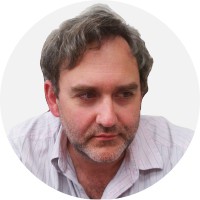The views expressed in our content reflect individual perspectives and do not represent the authoritative views of the Baha'i Faith.
In many of Bahaʼu’llah’s works during the early period of his exile to Baghdad, he dealt with themes related to the universal aspects of spiritual enlightenment and independent investigation of the truth.
In powerful works such as The Book of Certitude, The Seven Valleys, and The Four Valleys Baha’u’llah laid out an approach in which seeking truth first involved detaching oneself from all prejudice and attachment to old concepts and norms.
This process of purification, he wrote in The Book of Certitude, goes beyond just conceptual detachment and includes the avoidance of malice, slander, and backbiting, and a turning towards the illumination of the divine:
Wert thou to cleanse the mirror of thy heart from the dust of malice, thou wouldst apprehend the meaning of the symbolic terms revealed by the all-embracing Word of God made manifest in every Dispensation, and wouldst discover the mysteries of divine knowledge. Not, however, until thou consumest with the flame of utter detachment those veils of idle learning, that are current amongst men, canst thou behold the resplendent morn of true knowledge.
RELATED: The Enlightenment, Materialism, and the Loss of Meaning
Immanuel Kant’s call to enlightenment similarly invoked the need for detachment from previous norms and traditions to achieve one’s own understanding.
Yet later philosophers, instead of addressing themselves to the necessary next step after the rejection of cultural norms and religious dogma, instead took aim at the very possibility of accessing an objective reality that one can dare to know. To them, the idea that a person living in a particular culture and sociological environment could ever reach any truly objective knowledge via the sole use of rationality was problematic. They believed that this view was not only naïve but potentially dangerous, and saw it as akin to a dogmatic, pre-enlightenment belief in God or religion.
To those materialist philosophers this delusion of certainty even underpinned the rise of fascism and totalitarian Marxism. The followers of these movements, they pointed out, often replaced pre-enlightenment religious belief with an equally dogmatic “rationalist” belief system built from numerous flawed assumptions about race, class, and history. To combat this, the Frankfurt School introduced what they termed “Critical Theory” as one method to expose the inherent power structures embedded in the assumptions which secretly informed rational discourses at the heart of the various pursuits of such “objectivity.”
In their view, ultimately these assumptions – in the service of a ruling class – were responsible for the domination and abuse which manifested itself as racism and sexism. They were maintained more by the social structures and what they termed the “Culture industry” than by the actions or psychology of any given individual. Horkheimer described Critical Theory as an approach that could “liberate human beings from the circumstances that enslave them.”
Later the philosopher Thomas Kuhn presented his theory of the development of scientific knowledge, advancing the view that the so-called “objective” conclusions of science are informed and motivated by the subjective worldview of the researchers. Working from the French linguist Ferdinand Saussure’s premise of how meaning emerged from the relationships between words and differences between symbols, post-Structuralists drew on Kuhn’s insight to question the very idea of objective truth that underpinned contemporary rationality and science.
Ultimately, this led to the contemporary belief that there is no objective truth – that all truth is subjective. That conclusion came from philosophers who reasoned that if the meaning of words were so arbitrary and in flux, then the results and ability of science to yield stable knowledge about objective “reality” was in serious doubt. Also, if one could manipulate these relationships, then many versions of “truth” or “reality” could be produced.
Historically, the view embodied in these Enlightenment and liberal philosophies was termed “modern,” which meant that those who sought to move beyond so-called Enlightenment rational-style thinking have collectively been grouped under the general term “postmodern.” As such, many post-modernists entertained serious doubts about the whole concept of objectivity, modern rationality, and science.
From this basis, the French philosopher Foucault famously maintained in his 1971 treatise Nietzsche, Genealogy, History that “knowledge is not made for understanding; It is made for cutting.” It wasn’t that there was no objective reality, philosophers like Foucault maintained – instead, the relationship between what we thought of as objective knowledge was more dubious, and our knowledge structures were not unique in their ability to reference the world.
Foucault spent much effort uncovering the “genealogy” of knowledge systems and words to show how they changed, and in doing so changed relationships in society. Subsequently other post-modernist philosophers like Derrida launched into exhaustive and abstruse studies of language and the nature of the relationships between words that gives rise to meaning. Building on the linguist Ferdinand Saussure’s work, Derrida argued that these differences between words encoded power relationships – which he believed effected society in significant ways.
In part due to these observations, most of the post-structuralists rejected the concept that any overarching meta-narrative such as Marxism or Christianity could possibly explain human history. They further saw the construction of any meta-narrative as equivalent to the construction of power relationships. Thus, deconstructing those narratives was necessary to disperse these power relationships, they reasoned, and would help mitigate oppression in society. As such, much of the aim of these sorts of “anti-rationalist” critiques was to first deconstruct and then later disperse all potential points of unity.
The Science Wars
This manner of thinking had, by the early 1990s, created a wide disconnect between practicing physical scientists and those in philosophical, legal, social, and literary academia who engaged with these anti-rationalist critiques. This disconnect came to a head when several prominent scientists publicly challenged what they viewed as absurd conclusions about the validity of modern science coming from these postmodern academics and theorists. The controversy became known as the science wars, their triggering event the publication of the book Higher Superstition: The Academic Left and Its Quarrels with Science by biologist Paul R. Gross and the mathematician Norman Levitt in 1994.
This book provoked the Duke University postmodern and critical theory publication “Social Text” to compile a special issue of their journal called “Science Wars,” containing several short articles addressing the social influence and politics in science. In this journal the physicist Alan Sokal published an article entitled “Transgressing the Boundaries: Towards a Transformative Hermeneutics of Quantum Gravity,” which was reviewed and published in the journal. It was later revealed by Sokal that his work was a nonsensical piece designed to embarrass the pretensions of the postmodernists – which caused a firestorm of acrid, still-festering debates between these two groups of academics.
Yet, by the turn of the 21st century, these anti-rationalist critiques had started to circulate in intellectual and even political circles, and slowly became prominent in our current popular debates about living in a “post-truth” society. As such, the debate has generated much pushback against anti-rationalism, for example in discussions epitomized by Steven Pinker’s 2018 book Enlightenment Now, which addresses the impact postmodernism has on our response to the climate change crisis.
RELATED: How to Bring Truthfulness Back into Our Culture
Yet some of the post-modern critiques of the disasters caused by Western civilization were not wholly without merit. In Enlightenment’s assault on superstition and religion, any pretense of objective morality has perished, with the wielders of technology standing in place of the dethroned and murdered deity – as portrayed in Nietzsche’s famous conclusion: “God is dead. God remains dead. And we have killed him. How shall we comfort ourselves, the murderers of all murderers?”
These disasters which had inspired the Frankfurt School were actually foreshadowed about a century earlier in the ominous critiques of modern materialist society given in the writings of Baha’u’llah:
The winds of despair are, alas, blowing from every direction, and the strife that divideth and afflicteth the human race is daily increasing. The signs of impending convulsions and chaos can now be discerned, inasmuch as the prevailing order appeareth to be lamentably defective.
And in another passage:
The civilization, so often vaunted by the learned exponents of arts and sciences, will, if allowed to overleap the bounds of moderation, bring great evil upon men. Thus warneth you He Who is the All-Knowing. If carried to excess, civilization will prove as prolific a source of evil as it had been of goodness when kept within the restraints of moderation. Meditate on this, O people, and be not of them that wander distraught in the wilderness of error. The day is approaching when its flame will devour the cities.
The resolution of these debates, the Baha’i teachings say, doesn’t require the abandonment of rationality or truth or the original reasoned goals of the Enlightenment – but it does require the illumination which only divine revelation can provide. In the next article in this series, we will explore how divine revelation can serve as an agent of world order.
















Comments
Sign in or create an account
Continue with Googleor